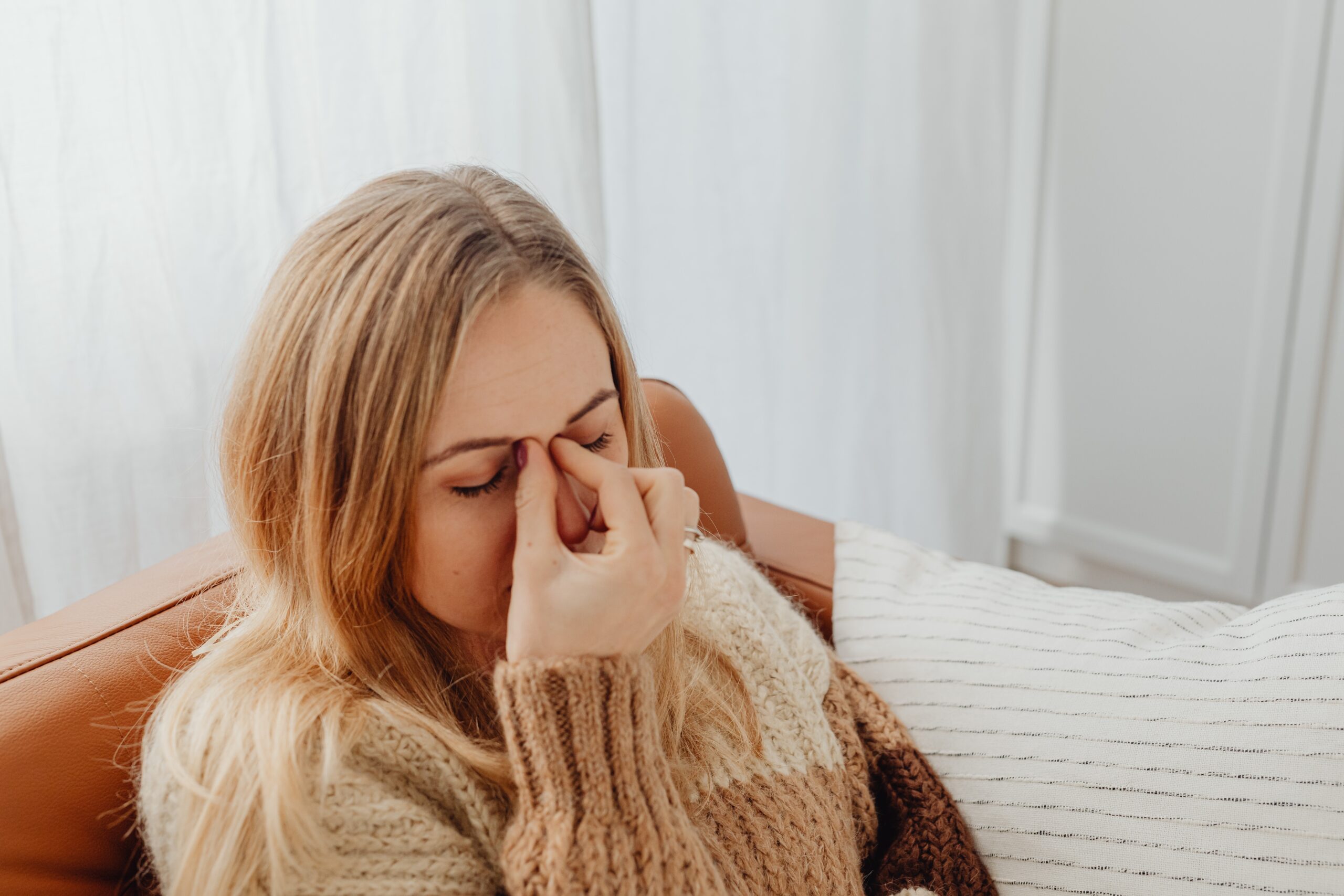Remedies for sinus infection and tips to prevent it is all this post is going to be about. When it comes to sinus infections the discomfort in your face is enough to send you scurrying for treatment.
However, the National Institutes of Health (NIH) warns against the overuse of antibiotics. Most sinus issues are caused by viruses, which are not treated by drugs. Even those caused by bacteria do not normally improve much faster with antibiotics, according to the FDA.
Fortunately, there are a number of natural therapies for sinus discomfort and infections that can efficiently bring relief. Some of these methods are even encouraged by doctors, who claim that getting nasal mucus flowing might help you feel better while your body battles the infection effectively.
So, here goes the list of best home remedies for sinus infection you must try:
1. Apple Cider Vinegar

Apple cider vinegar is a fantastic natural substance that has several health advantages. A cup of hot water or tea with two or three teaspoons of raw, unfiltered apple cider vinegar taken three times per day may help thin out extra mucus, reducing congestion and sinus strain. To taste, add lemon and honey. For best effects, take 1 teaspoon of apple cider vinegar three times each day.
2. Stay Hydrated

Water, tea, and sugar-free juices are all wonderful methods to keep your system hydrated. These fluids aid in mucus thinning and provide comfort to inflamed sinuses. Dehydration can be caused by alcohol, coffee, and smoking. It may sound very obvious but it can be an effective remedy from many other remedies for sinus infection.
3. Heat Up (or Steam Up) Your Face

Remedies for sinus infection can’t be completed without a steam facial in it. Warming and moisturizing your nasal passages is one of the most effective home treatments for sinus infections.
“Inhaling steam soothes the sinus tissue and gives you the sensation of emptying them out a little,” Dr. Del Signore explains.
When the shower is running, you may just stand in it or sit in the bathroom. You may also recline on your bed with a hot washcloth over your nose and cheeks.
Boil a pot of water, then remove it from the heat for the most effective steam treatment. Inhale the steam by draping a towel over your head and bending over the pot. Keep your eyes closed and avoid getting too near to the hot water at first. You can move in a bit when the liquid cools, but only to the point where it is comfortable.
Also read the 10 best foods for cough and cold
4. Use a Neti Pot

Nasal irrigation is a common treatment for sinusitis symptoms. A recent study suggests that using a neti pot with a saline solution helps alleviate some of the symptoms of chronic sinusitis.
Follow the instructions that came with your neti pot. Here are some broad guidelines:
- Fill the pot halfway with saline solution.
- Set your head at a 45-degree angle over the sink.
- Insert the pot’s spout into your upper nose. Pour the saline solution into that nostril with caution.
- Repeat the procedure with the opposite nostril.
After each usage, be sure to sterilize your neti pot. Only distilled water was utilized. Water from the sink may include impurities such as bacteria or parasites, which might aggravate your disease.
5. Ease facial pain with warm compresses

Applying moist, warm heat to the sinuses may help relieve discomfort. To relieve facial discomfort, wrap warm, moist towels around your nose, cheeks, and eyes. This will also aid in the clearing of the nasal passages from the outside.
6. Over-the-counter medication

Nasal sprays containing a decongestant may be beneficial in alleviating sinus congestion.
However, according to Harvard Medical School, decongestants can potentially be problematic. Congestion, for example, can occasionally worsen when a person discontinues the use of decongestants.
Taking pain relievers may also assist with nasal congestion pain.
If a person gets adverse effects of the drug does not work, they should consult a doctor.
7. Turmeric and Ginger Root

Turmeric root is a lovely, aromatic spice that is widely available in India. Turmeric not only has natural anti-inflammatory qualities, but is also high in antioxidants. This combination, when coupled with spicy ginger root and drunk in hot tea, will help remove mucus from congested nasal passages, reduce sinus pressure, and make you feel instantly better. Vasant Lad offers a blend of fresh ginger juice and 1 tsp honey eaten 2 to 3 times a day in his book, ‘The Complete Book of Ayurvedic Home Remedies.’
Ten tips to avoid sinus infections
- Frequently wash your hands.
- Keep the nose moist with nasal saline sprays (the cilia inside the nose work more effectively in a moist environment).
- Keep your allergies managed well.
- Avoid nasal irritants such as pollution and smoke.
- Irrigate your sinuses on a regular basis (from once a day to once a week for some) with a saline sinus wash.
- Take oral probiotics especially after taking antibiotics in an effort to replenish the natural biome of the sinuses.
- Try to avoid taking antibiotics or steroids if possible as both will affect the natural good bacteria (biome) that live in the sinuses and allows bad bacteria to proliferate.
- Persistent nasal congestion can decrease airflow to the sinuses and may also block the outflow tract of the sinuses. If you have a badly deviated septum or a hole in your septum, getting that repaired will be beneficial.
- Swim in salt water pools as they are less irritating to the nasal and sinus mucosa and produce much less inflammation when compared to chlorinated pools.
- Try to maintain a healthy lifestyle and maintain a strong immune system as other illnesses such as a viral cold or flu can cause a sinus infection to occur.
Summary
So this was the list of best home remedies for sinus infection and 10 ways to prevent it.
Sinus congestion is most usually caused by a cold, virus, or bacterial infection. Among the symptoms include a sore throat, a runny nose, and coughing.
A person might attempt a variety of basic home remedies to help ease these symptoms. Among these include breathing steam, using eucalyptus oil, and staying hydrated. OTC drugs, such as nasal sprays, can also be used.
They should consult a doctor if their symptoms do not improve or worsen, as the doctor will be able to determine what is causing the infection and prescribe appropriate medication if necessary.

